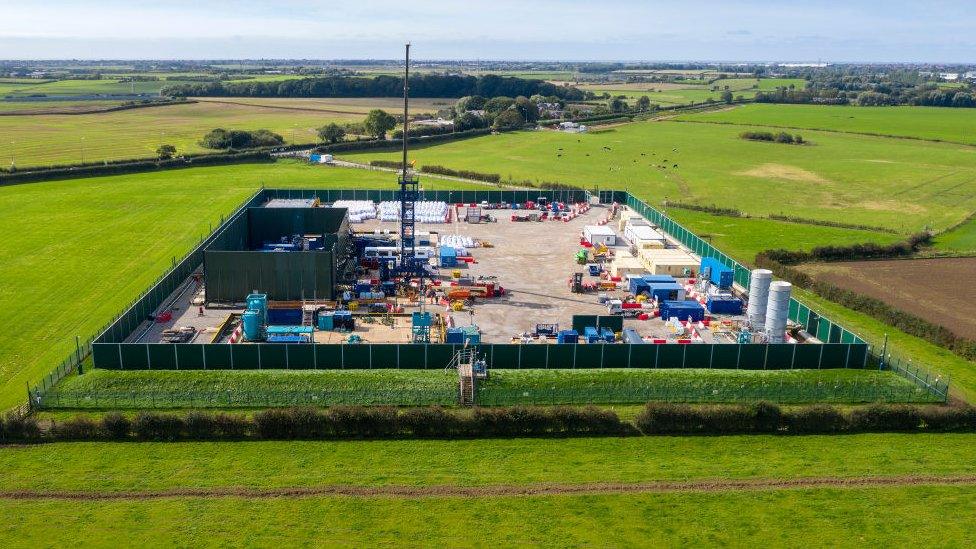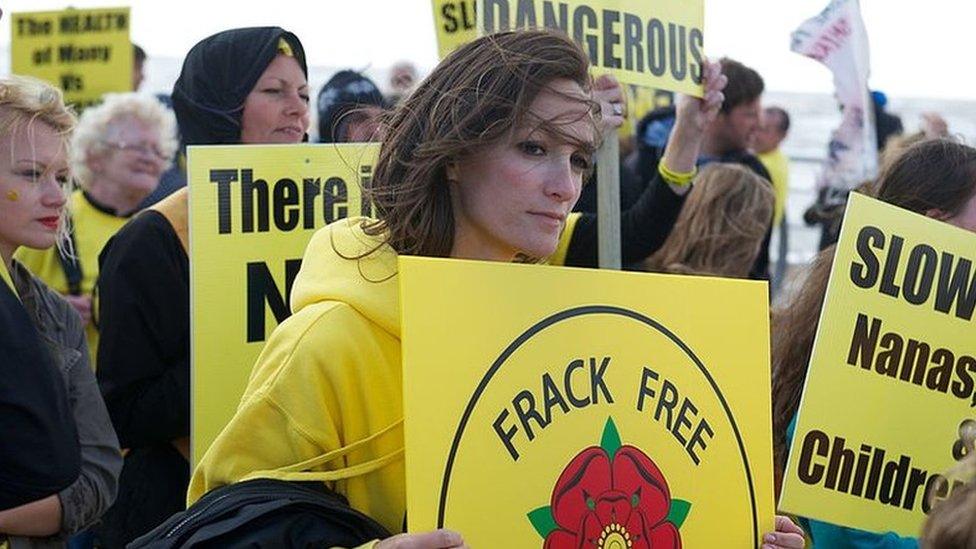Why has fracking site not been restored?
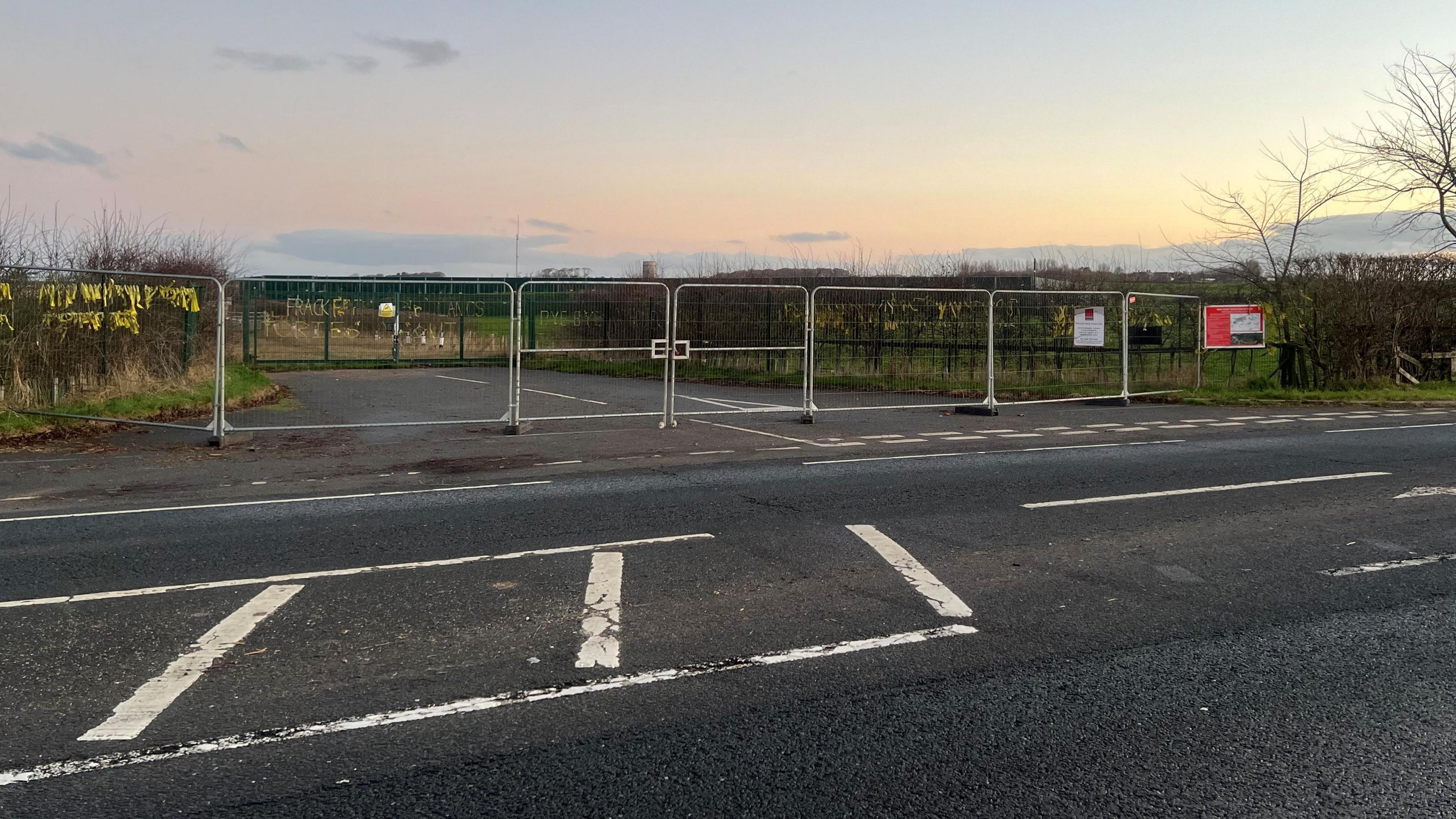
There have been no signs of activity at the mothballed site for the last few weeks
- Published
The deadline for energy firm Cuadrilla to plug in the UK's only two shale gas wells has passed with questions remaining on whether it has been completed.
The site on Preston New Road, near Blackpool, was the country's first horizontal fracking site but after more than 120 tremors were recorded during drilling the controversial process was banned in 2019.
Fracking sparked lengthy protests from environmentalist groups and local communities in Lancashire.
Five years on since the ban and the two wells were meant to be decommissioned by midnight on Sunday or the firm would be in breach of Lancashire County Council's planning laws.
There has been no signs of activity at the site for weeks.
Fylde Council recently put up extra fencing in front of the entrance to prevent fly-tipping as rubbish was getting dumped outside the gates.
The BBC has contacted Cuadrilla to ask if the wells have been abandoned but the firm has not responded.
Meanwhile, Lancashire County Council also did not answer when asked if the work had been completed.
It sent a statement, though, saying it had "powers to compel a landowner or operator to comply with conditions to a planning permission".
"We have been in discussion with Cuadrilla in recent months as to how the restoration of the site can be progressed, and we are continuing to seek a resolution to this matter," it added.

Nick Danby says he was shocked at the lack of progress at the site which is meant to be restored to agricultural land by June
Nick Danby, a campaigner for Frack Free Lancashire, which protested against the site, said he was shocked by the lack of progress.
"They haven't even started," he said.
"It shows a total disregard for the planning authority, for the regulators and of course the community.
"Cuadrilla made all these bold promises and they are now totally failing in their duties to clear up after themselves."
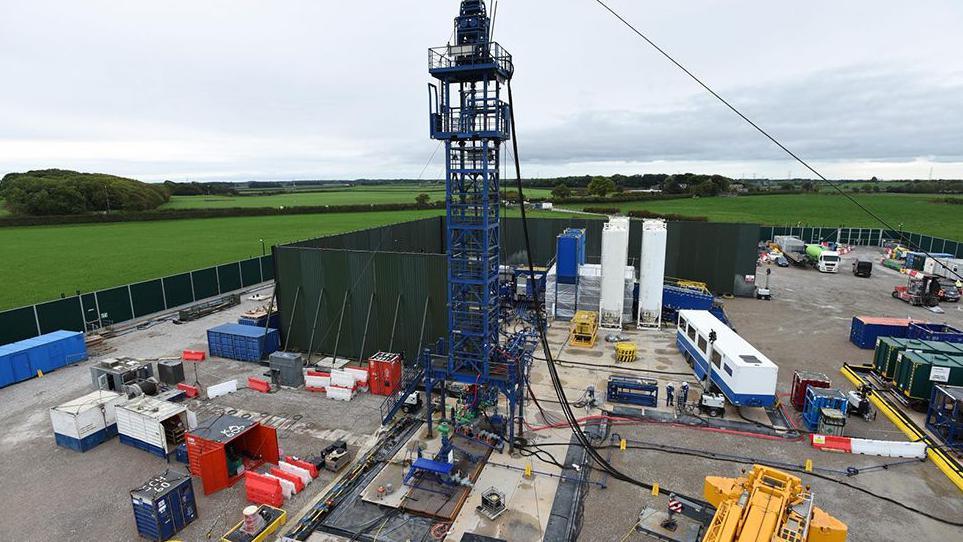
Cuadrilla has been told the Preston New Road site must be returned to agricultural land by June
In October, residents living near the site spoke of their frustration at how long it was taking to dismantle the site and expressed their concerns the firm would miss the deadline.
One of the UK's leading land well abandonment firms estimated the work would take about three to four weeks.
PW Well said rigs were readily available in the UK to plug in oil and gas wells.
It said the substantial financial costs to do the work could be a reason for delays to decommissioning wells.
"To abandon oil and gas wells costs about half a million pound on average," a representative said.

Ruth Hayhurst says decommissioning the wells is "a big job"
Hydraulic fracturing, or fracking, involves drilling into the earth and directing a high-pressure mixture of water, sand and chemicals at a rock layer, to release the gas inside.
Cuadrilla previously said fracking would drive job creation in the north of England and "help tackle spiralling gas prices".
But, injecting fluid at high pressure into the rock can cause tremors, which is what happened in Lancashire leading to the fracking ban.
As well as a deadline for decommissioning the wells, Cuadrilla was told the site must be returned to agricultural land by June 2025.
The energy firm had already been given a two-year extension to dismantle the wells and restore the land.
Ruth Hayhurst is a journalist from Drill or Drop website, which she describes as "independent journalism on UK Fracking, onshore oil and gas and the reactions to it".
She told the BBC: "Cuadrilla came up with a project plan for the work and it allocated seven months to plug and abandon wells.
It had also allocated more time to restore the field, which was a dairy farm, back to what it was, she said.
"It's a big job."
Listen to the best of BBC Radio Lancashire on Sounds and follow BBC Lancashire on Facebook, external, X, external and Instagram, external. You can also send story ideas to northwest.newsonline@bbc.co.uk, external and via Whatsapp to 0808 100 2230.
Related internet links
- Published9 October 2024
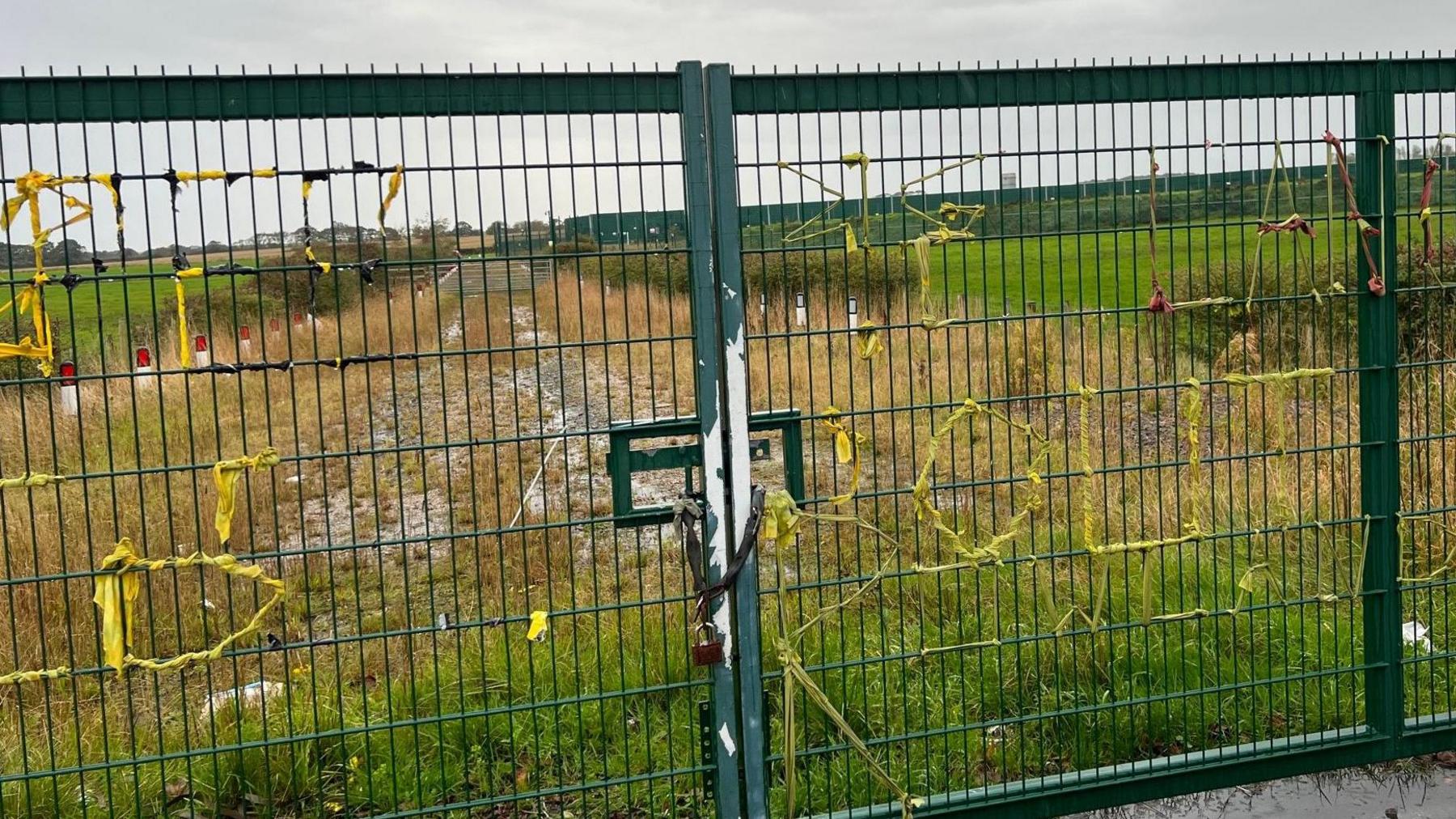
- Published10 February 2022
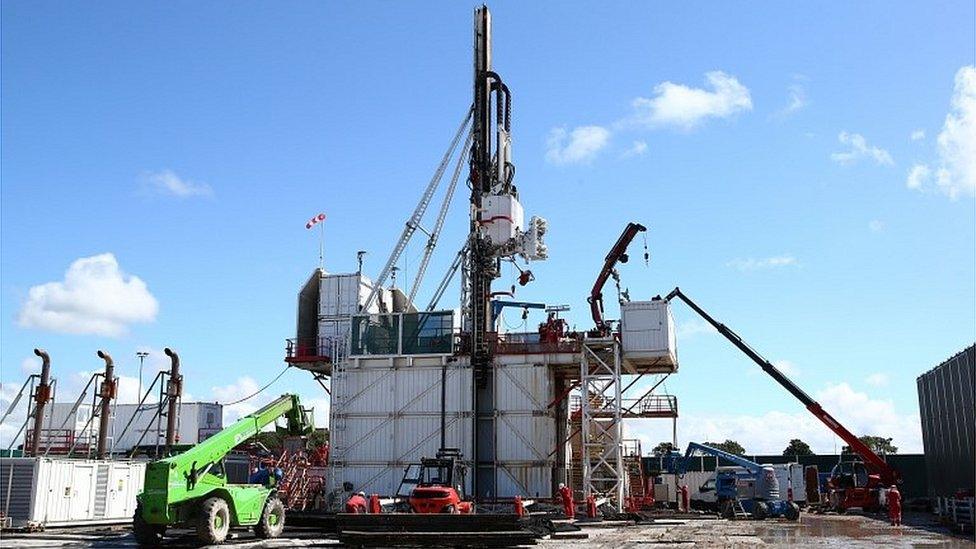
- Published5 December 2022
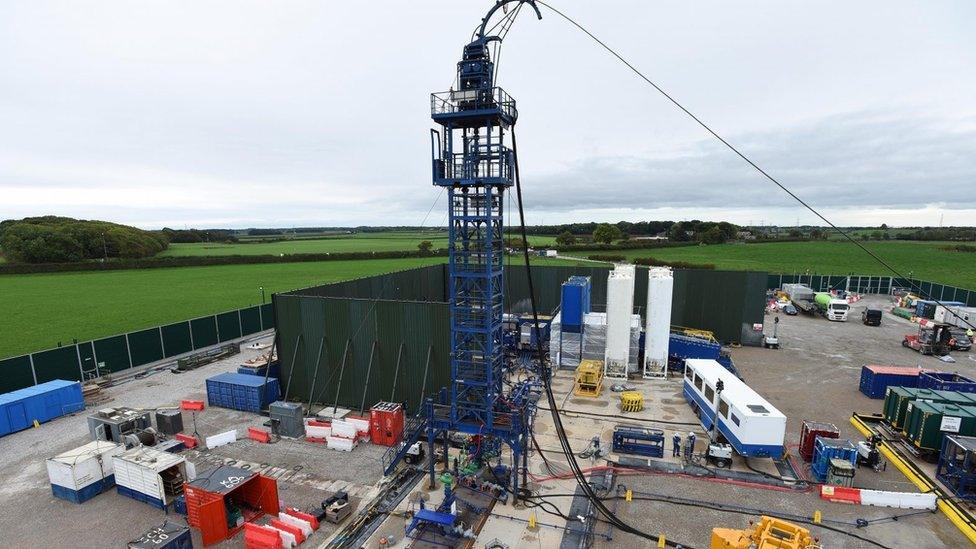
- Published2 November 2019
